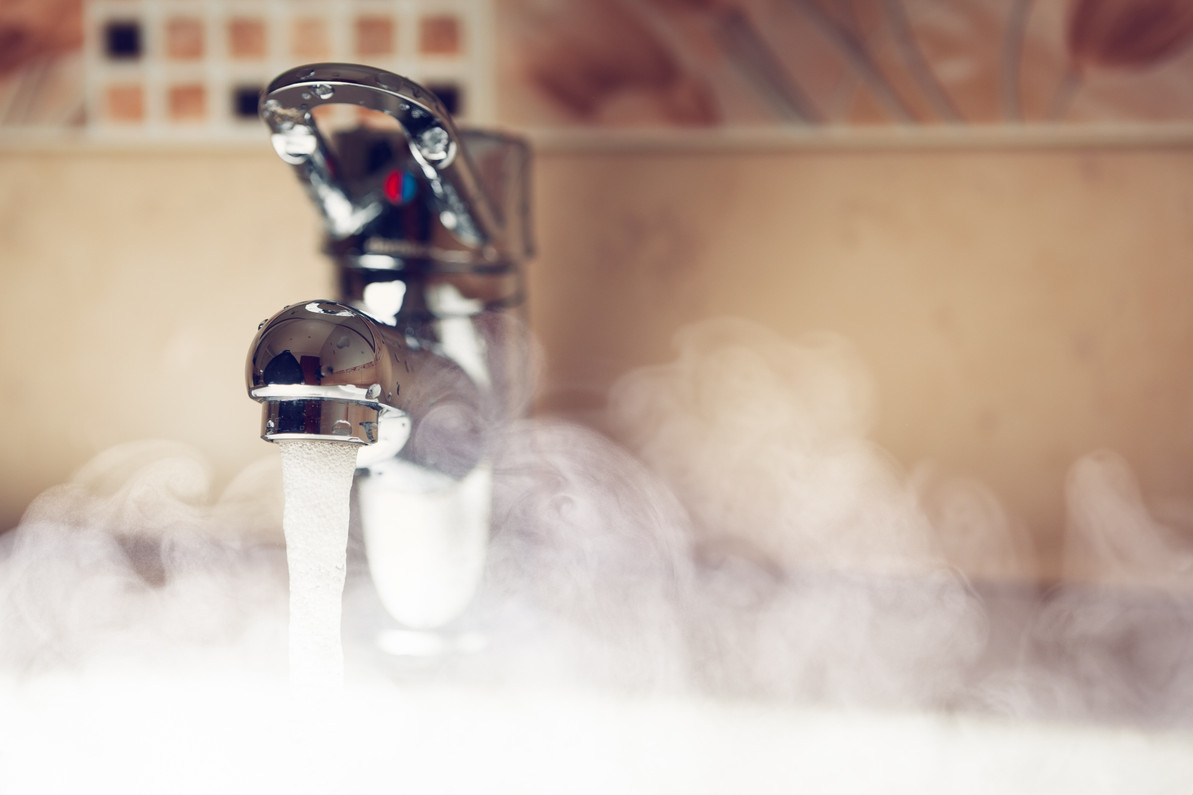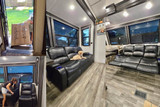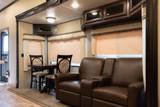Thinking Tankless? Here's What You Should Know About RV Tankless Water Heaters
If you own an RV, you have likely heard of tankless water heaters. Compared to traditional models, tankless water heaters use less energy and take up less space - 2 features which RV owners rank quite highly for any appliance or product going in their rig. Though they are widely used in the RV industry, tankless models do have some downsides. This article will cover the basic advantages and disadvantages of tankless water heaters and help to explain why their use in RVs is so common.
Advantages
There are multiple benefits to tankless water heaters, especially in RVing, where space and available energy are limited. Keep reading for some key benefits tankless water heaters provide and how these especially relate to RVs and campers.
Reduced Energy Use

RVs are equipped to both utilize shore power when available and store and generate their own power for use when camping off-grid. Using energy efficiently is always a good idea, but when you do not have access to an unlimited supply of power, it becomes a necessity.
Traditional tank-style water heaters are always running to maintain a supply of hot water that is readily available. Tankless water heaters, however, only use energy when you call for hot water by using the faucet. Water is made hot on demand by passing through a heating element on its way to the outlet. This fundamental difference is what makes tankless water heaters more efficient than tank-style water heaters.
Those who boondock regularly in their RV know that energy efficiency is often the main priority when choosing appliances best-suited for their rig. Even if you typically stay at campgrounds where electrical hookups are available, you may prioritize energy efficiency. If this is the case, you may consider a tankless water heater over a traditional tank-style heater.
No Bulky Water Tank

Tank-style water heaters consist of a pressurized storage vessel along with a heating element. So, not only do they take up a lot of space, but they can also pose some pretty significant hazards. Faulty seals or corroded fittings on a tank water heater can lead to leaks or, even worse, an explosion. If you own an RV, you should be aware of the damage water can impart on your rig due to the construction and structural components necessary which allow motorhomes to be taken on the road. Additionally, space and weight restrictions certainly come into play when choosing appliances for your RV.
Tankless water heaters take up less space and have a significantly smaller risk of leaking, though it is still possible after years of use and/or poor maintenance and upkeep. The risk of explosion is gone due to the system's absence of a pressurized tank. No matter your RV lifestyle, a product that reduces the risk of damage to your rig or harm to yourself is worth considering.
Long-Term Use
While you shouldn't expect your RV to last as long as a sticks N bricks home, product longevity should still be worth considering. Tankless water heaters, when used in homes, can last upwards of 20 years, while tank-style water heaters typically last 8-12 years. With proper use and regular maintenance, well-cared-for RVs can last around 20 years, depending on mileage. For those in it for the long haul, a tankless water heater may mean you won't ever have to worry about finding or paying for a replacement.
Unlimited Hot Water Supply
Your water supply may be limited in your RV, but with a tankless water heater, the water you do have can always be hot. The water is being heated on-demand instead of coming from a preheated supply, so there is no supply to run out of. Unless, of course, you do not have access to full hookups.
A tankless water heater requires electricity to operate and, obviously, water to heat. In the case of boondocking, your hot water supply will still be limited by your overall water supply and available power usage.
Disadvantages
There are many benefits that tankless water heaters provide over traditional tank-style water heaters, but they do have some drawbacks. Read on for some disadvantages of tankless water heaters worth considering before determining whether they are the right choice for your rig.
High Initial Cost
For home units, tank-style water heaters are much more affordable than tankless models, but the price difference is not as drastic in units designed for RV use. This is likely because traditional tank-style water heaters for homes are too large for RVs so tank-style water heaters must be specially made and specifically designed for motorhomes. Tankless water heaters are in a form that is more friendly to RV use, not accounting for any other factors mentioned in this list.

Longer Warm-Up Time
Since water is not stored hot and the tankless unit is only working when in use, it may take a bit longer for hot water actually to reach the faucet. This is usually only around 15 seconds, but tank-style water heaters can supply hot water instantly. In situations where water conservation is imperative, this could be a significant drawback. To combat this, many RVers get creative and catch that lead-up water from the shower in a clean bucket and use it to flush toilets or do dishes later. It's a bit extra work, but no one ever said the RV life was easy!
"Cold Water Sandwich" Effect
There is a phenomenon known as the cold water sandwich, which affects tankless water heaters when they are used intermittently. The result is a blip of cold water coming through the stream of hot water flowing through the pipes. This happens when hot water is used, turned off, then used again in a relatively short period of time. Hot water gets trapped near the outlet of the pipes when the faucet is turned off, which also turns off the water heater. When the hot faucet is turned back on, the previous hot water comes out but is followed by cold water as the tankless heater takes a couple of seconds to heat back up before hot water is ready again. This may not be a dealbreaker as most people hardly notice after a while, but giving your guests a heads up may not be a bad idea!
Tough to Reach a Cool Temperature
After a long, hot day spent at the campground or out adventuring, nothing beats a cool shower before bed. If you install a tankless water heater, you may be disappointed to find that cool to tepid water is not really an available temperature setting. Some prefer a hot shower all the time, but many appreciate the refreshing sensation of a cool shower every once in a while. If you are considering a tankless water heater but fall in the latter category above, you may want to further research this topic.
Do you have a tankless water heater in your RV? What do you like about it? What don't you like about it? Let us know in the comments section below. We want to hear from you!
Recent Posts
-
Traveling to the RV Hall of Fame in Elkhart, IN
If you are traveling to Elkhart, IN to see the RV Hall of Fame, getting off the toll road at exit 96 …Nov 14, 2025 -
Best RV Air Conditioners of 2025: An Expert Guide From RecPro
Quick Answers Best overall RV air conditioner: RecPro 15K Quiet AC with Heat Pump (RP-AC3800) Best f …Oct 29, 2025 -
The Nuclear Nomads Expand Sofa with New Recliner Section Install
The Nuclear Nomads are a full time RV family living in south Florida. Andi and Joey value quality ti …Oct 24, 2025 -
Trailer Wiring Guide: How to Wire Your Trailer for Safety and Efficiency
Table of Contents 1. Common Types of Trailer Connectors 2. Trailer Wiring Diagrams: Color Codes and …Aug 20, 2024 -
How to Keep Your Pets Safe While Camping
RVing and camping are a great getaway from the hustle and bustle of work and the city and the day-to …Jul 02, 2024 -
Why Replace Your RV Furniture?
You may wonder when is the best time to replace your RV furniture. There is no one right answer to t …May 20, 2024







